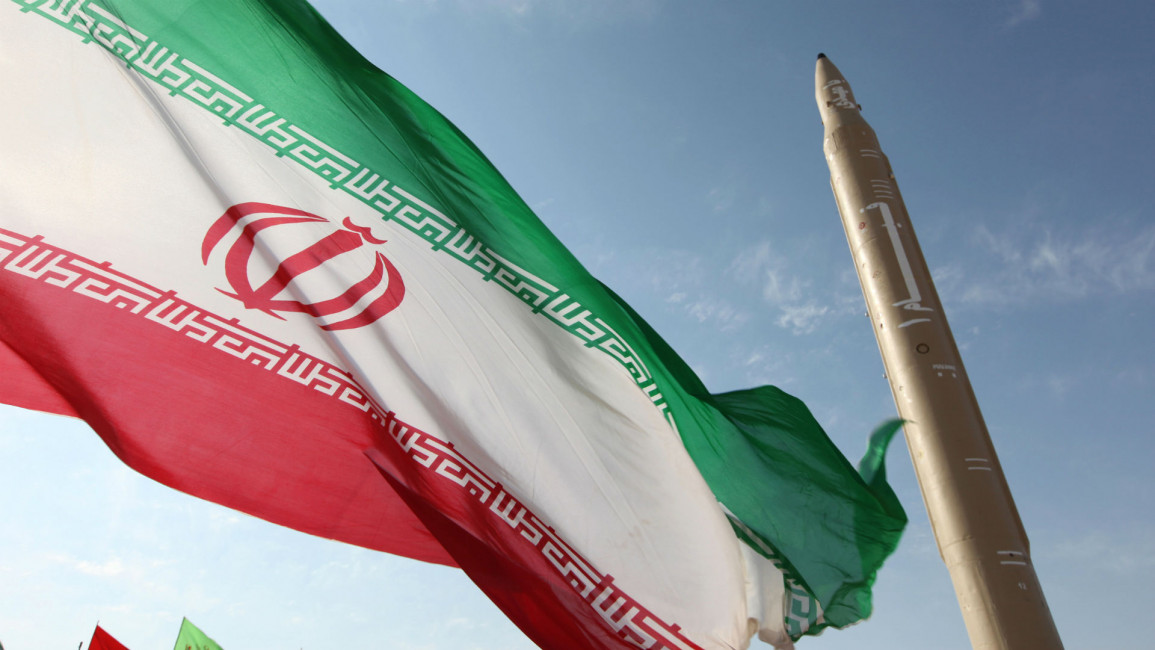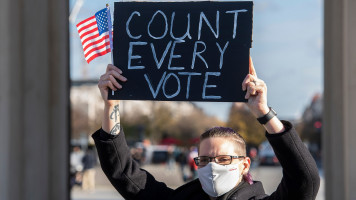US imposes new sanctions on Iran, targeting defence officials
US President Donald Trump's administration hit Iran with new sanctions on Friday, aimed at scientists and technicians involved in the country's controversial nuclear project.
The announcement comes as Secretary of State Mike Pompeo's visit to Lebanon in which he repeatedly denounced Iran's growing influence in the region.
The US treasury department said the sanctions target 31 Iranian scientists, technicians and companies affiliated with Iran's Organizsation for Defence Innovation and Research, which had been at the forefront of the country's former nuclear programme.
Officials said those targeted continue to work in Iran's defence sector and form a core of experts who could reconstitute that programme. Fourteen people, including the head of the organisation, and 17 subsidiary operations are covered by the sanctions.
The sanctions freeze any assets that those targeted may have in the US and bar Americans from any transactions with them. But, officials say the move will also make those targeted "radioactive internationally" by making people of any nationality who do business with them subject to US penalties under so-called secondary sanctions.
US secondary sanctions apply to foreign businesses and individuals and can include fines, loss of presence in the American economy, asset freezes and travel bans.
Officials said the threat of such sanctions will significantly limit the ability of those designated to travel outside of Iran, participate in research conferences or be hired for other jobs.
Pompeo on Twitter called the sanctions part of the "maximum pressure campaign" on Iran as the US tries to roll back the regime's regional influence.
"Individuals working for Iran's proliferation-related programmes - including scientists, procurement agents, and technical experts - should be aware of the reputational and financial risk they expose themselves to by working for Iran's nuclear programme," the State Department said in a statement.
The move is unusual because the sanctions are not being imposed based on what those targeted are currently doing but instead on past work and potential reinvolvement in the field.
Iran has pledged not to resume its nuclear programme following the collapse of a landmark 2015 deal with the US. The UN's atomic watchdog says Iran continues to comply with the agreement.
Washington pulled out of the agreement last year, saying it was fatally flawed, and re-imposed crippling US sanctions that were previously eased under the terms of the deal. The Trump administration continues to impose sanctions as part a pressure campaign to force Iran to renegotiate the agreement.
European nations still back the accord and have been finding ways around US sanctions in order to preserve the deal.
Officials said the new sanctions were in part based on Israel's recovery of a "secret archive" of documents from Iran that allegedes Iran deliberately preserved and stored its early nuclear weapons work, known as the "Amad plan", with the intent to someday resume the work.
The announcement came as Pompeo was in Beirut warning Lebanese officials to curb the influence of the Iran-backed Hizballah movement he considers terrorist, saying it should not wield power despite its presence in Lebanon's parliament and government.
Follow us on Twitter: @The_NewArab





 Follow the Middle East's top stories in English at The New Arab on Google News
Follow the Middle East's top stories in English at The New Arab on Google News


![Algeciras port [Getty]](/sites/default/files/styles/image_330x185/public/75377010.jpeg?h=327453ef&itok=KfCFUEza)